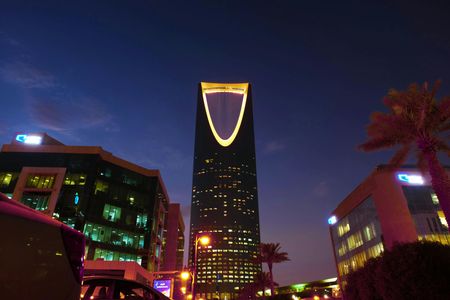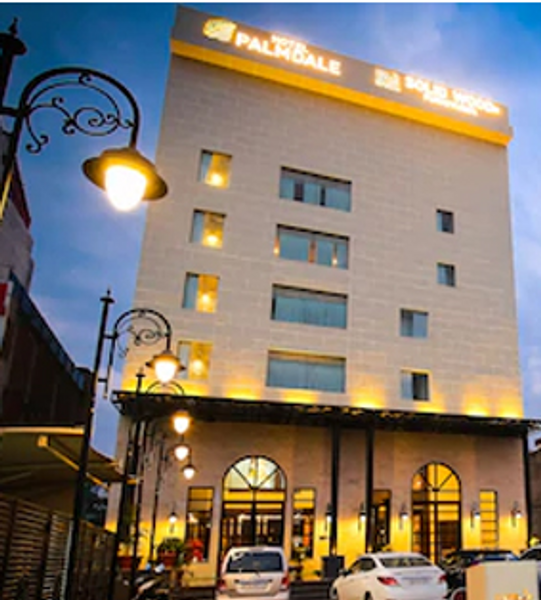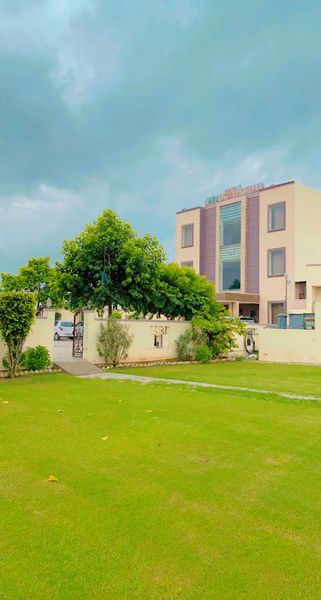A Detailed View of Rise of Islam in Saudi Arabia
 Mr. Rashid
09 Sep, 2024
12 mins read
255
Mr. Rashid
09 Sep, 2024
12 mins read
255

Religion is vital in the Kingdom of Saudi Arabia; hence, Islam is the dominant religion. It has influenced the development of this nation's cultures, politics, and societies for centuries. Islam has its history taking its roots in Saudi Arabia and the peninsula in general.
This blog aims to show major landmark events that led to the formation of Islam in Saudi Arabia, which is now regarded as the nucleus of the Islamic world.
1. The Birth of Islam
Islam was founded around 610—620 CE in a city known as Mecca, today Saudi Arabia. In the 8th century, the Arabian Peninsula comprised cultural, religious, and tribal groups. Meccans were polytheists, and they used to worship several gods. However, this was soon to change.
Muhammad received revelations in the form of messages from Allah through the angel Gabriel in 610 CE AD while he was in Mecca, where he was born in 570 CE. These revelations, which lasted for 23 years, paved the way for establishing the religion of Islam. Islam's last prophet is Muhammad, whose teachings are contained in the Quran, the Islamic holy text.
2. The Early Struggles of Islam
The religion that Muhammad preached was one of submission to the one and only God and equality for people; the people in Mecca had ears but did not hear. The ruling Quraysh tribe, which belonged to the Islamic prophet Muhammad, was threatened by the new religion because it interfered with their significant sources of income, mainly the polytheistic Kaaba pilgrimage trade. However, due to the advancement of Islam and followers of this religion, Muhammad and his early companions were core to persecution. Those Muslims who want to explore all of these historical places should have good Umrah travel agents through they can customise their travel packages to let them explore much along with Umrah.
In 622, Harzat Muhammad (S.A.W) and his Companions left Mecca and moved to Medina, a city north of Mecca. The event is referred to as Hijra, and it is still used as the Islamic calendar’s starting point. That is why in Medina Islam started to grow.
3. The Conquest of Mecca and the Spread of Islam
Later, in the seventh year of migration, or in 630 CE, Muhammad and his followers returned to Mecca and overpowered the city without much fight. He removed all the idols from the Kaaba, the most sacred place in Islam, the shrine at Mecca, and made it a centre for the worship of Allah only. The Kaaba still holds prime reverence in Islam, and while praying, Muslims turn their faces towards it.
The taking of Mecca can be regarded as the turning point in Islam's history. Soon, due to the acceptance of tribes and communities of the new religion, Islam made its way around the Arabian Peninsula. By the time of the prophet Muhammad’s death in 632 CE, Islam had gained a firm foothold in the area.
4. The Caliphate Era
The leadership crisis became the next problem for the Muslim community after Muhammad's death. The first four appointed leaders of the Muslims are known as the Rightly Guided Caliphs; all four were companions of Muhammad. They nevertheless occupied an important place in uniting and extending the Islamic state. The caliphate's capital at the formation of the Rashidun Caliphate was Medina.
Under Umar ibn al-Khattab (634-644) the Muslims started penetrating regions outside the Arabian peninsula, for instance, Syria, Iraq, Egypt, Persia, and the like. During this, the most important Islamic institutions were created, and the fundamental laws in Islamic countries, Fach, were written.
5. The Umayyad and Abbasid Dynasties
The Umayyad Dynasty lasted from 661 until 750 CE. The Islamic empire's capital was shifted to Damascus, in present-day Syria. The Umayyads continued the role of the Rashiduns and grew the empire further across North Africa to Modern Morocco, Andalusia in Spain, and central Asia. However, their reign was characterised by confrontation between Arab and non-Arab Muslims, which caused a stir.
The Abbasid Dynasty deposed the Umayyads in 750 CE and moved the empire’s capital to Baghdad. The Abbasid era is referred to as the age of Islamic culture, with significant breakthroughs in science, philosophy, medicine, and the arts. Politically, Arabian territory, including today’s Saudi Arabia, became marginal to the empire.
6. Religion of Islam in the Arabian Peninsula in the Mediaeval Age
In the mediaeval age, the Peninsula was a collection of petty kingdoms and principalities of tribal groups. The region, especially the Hijaz, where KSA is located, remained significant because of the annual pilgrimage to the holy cities of Mecca and Medina across the globe due to the Hajj.
Nevertheless, the Arabian Peninsula began to be somewhat peripheral concerning the political activities of the larger Islamic world at this time. However, it was a sacred ground for worship and a melting point for business corporations.
7. Al-Ras: Turjuman of the Saudi State
The perception of modern Islamic Saudi Arabia may be traced to the appearance of the Al Saud family in the 18th century. In 1744, a religious scholar, Muhammad Ibn Abd Al-Wahhab, appeared, joined by the ruler of a tiny Islamic principality in central Arabia, Muhammad Ibn Saud. With the help of his forces, he set up a state that adhered to the fundamentalism of the modern interpretation of Islam, called Wahhabism.
This created the first Saudi state and subsequently brought under its influence most parts of the Arabian Peninsula. He failed in this and was defeated by the Ottoman Empire early in the nineteenth century. The Al Saud family had few obstacles but wanted power in the region, which was achieved to various degrees.
8. The Heartland of Islam
From its inception, Saudi Arabia has had a prime strategy of being at the top of the Muslim world. Thus, we are talking about the country that is the Islamic religion's birthplace and has two holy cities—Mecca and Medina. Tens of millions of Muslims from all corners of the globe come to Saudi Arabia annually to complete the Hajj, which is one of the five significant duties of a Muslim. It doesn’t matter if you live in London; Muslims can take Umrah packages London from any good agency, so you can easily have it and customise the deal accordingly.
The Saudi government has also invested in funding and developing facilities for the Hajj and Umrah. This commitment is evident in expanding the grand mosque in Mecca and the Prophet’s mosque in Medina.
Saudi Arabia has a significant influence in the Muslim world because it acts as the protector of the most holy sites of Islam. This status is actively used to advance what the country regards as the ‘correct’ interpretation of Islam, and that is Wahhabism both at the regional and international levels.
9. Islam in Modern Saudi Arabia
In the contemporary world, KSA has been in a dilemma to uphold the country's religious aspect while seeking to transform into the modern world. The later discovery of massive oil sources in the 1930s propelled the nation into the list of the wealthiest nations in the world. This wealth has allowed Saudi Arabia to control a significant amount of the world’s affairs.
Conclusion
Therefore, the emergence of Islam in Saudi Arabia can be categorised as a story of faith, power, and change. As the religion of the Arabian Peninsula has come from the sands of Mecca to the global centre of the Muslim world, Islam has played a pivotal role in Saudi Arabia’s history.
As the country becomes more progressive in every aspect, it still struggles to solve various issues of the conflict between the modern world and the fundamental adherence to the Islamic religion.
Learn More: mytravaly.com
Written By:
Mr. Rashid



Hotels at your convenience
Now choose your stay according to your preference. From finding a place for your dream destination or a mere weekend getaway to business accommodations or brief stay, we have got you covered. Explore hotels as per your mood.


